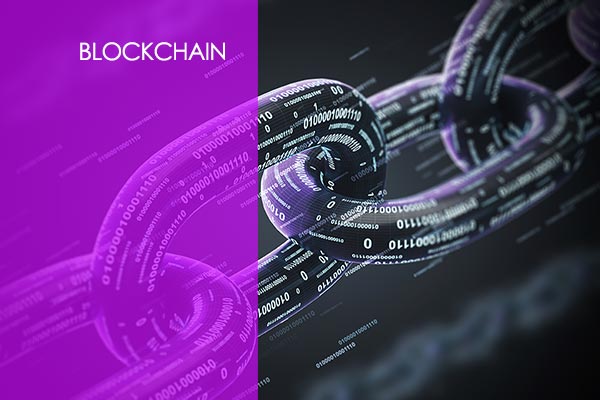The Certified Blockchain Developer – Hyperledger (CBDH) certification is designed for developers who want to demonstrate their ability to build and maintain Hyperledger-based blockchain applications. This certification validates the holder’s expertise in developing and implementing blockchain solutions within an enterprise environment, focusing on Hyperledger technologies. It covers a range of topics, including the architecture of Hyperledger Fabric and Sawtooth, chaincode development, and the deployment of smart contracts and applications that run on Hyperledger platforms.
Associated Exams
- Exam Format: Multiple-choice and true/false questions
- Delivery Method: Online proctored or testing center
- Duration: 2 hours
- Number of Questions: Approximately 70
- Passing Score: Varies, typically around 70%
Exam Costs
The estimated cost to take the CBDH exam is approximately $300 USD. Prices may vary based on geographic location and available promotions or discounts.
Exam Objectives
- Understanding Hyperledger Fabric and Sawtooth: Architecture, components, and operation.
- Chaincode Development: Writing, deploying, and managing chaincode.
- Smart Contracts and Applications: Development and deployment on Hyperledger platforms.
- Network Setup and Administration: Configuration and management of Hyperledger blockchain networks.
- Security and Privacy: Implementing security measures and privacy protocols in Hyperledger applications.

Certified Blockchain Developer – Hyperledger (CBDH)
Seize the future with our Certified Blockchain Developer – Hyperledger (CBDH) course! Ideal for engineers and developers, this course is your ticket to Blockchain Training Alliance Certification. Master blockchain now and lead the tech revolution!
Frequently Asked Questions Related to Certified Blockchain Developer – Hyperledger
What prerequisites are required for the CBDH certification?
Typically, a strong foundation in blockchain technology and experience with programming languages such as JavaScript, Go, or Java is recommended.
How long is the CBDH certification valid?
The certification is usually valid for two years, after which recertification may be required.
Can I take the CBDH exam online?
Yes, the exam can be taken online as a proctored exam or at designated testing centers.
What study materials are recommended for the CBDH exam?
Official study guides, online courses, and hands-on practice with Hyperledger technologies are highly recommended.
Is there a recertification process for CBDH?
Yes, to maintain certification, you must either pass the current version of the exam again or meet continuing education requirements before your certification expires.
Key Term Knowledge Base: Key Terms Related to Certified Blockchain Developer
Understanding the terminology associated with blockchain development is crucial for professionals in the field. As blockchain technology continues to evolve, it paves the way for innovative applications beyond cryptocurrency, such as smart contracts, decentralized finance (DeFi), and non-fungible tokens (NFTs). Certified Blockchain Developers are expected to have a comprehensive grasp of these concepts, as well as the technical skills to implement blockchain solutions. This knowledge not only helps in developing blockchain applications but also in understanding the broader impact of blockchain on various industries. Below is a list of key terms that are essential for anyone aspiring to become a Certified Blockchain Developer or enhance their expertise in blockchain technology.
| Term | Definition |
|---|---|
| Blockchain | A distributed ledger technology (DLT) that maintains a secure, transparent, and tamper-proof record of transactions across a network of computers. |
| Smart Contract | Self-executing contracts with the terms of the agreement between buyer and seller being directly written into lines of code, automated and enforced by the blockchain. |
| Decentralized Application (DApp) | An application that operates on a decentralized network, avoiding a single point of failure. |
| Ethereum | An open-source, blockchain-based platform known for its smart contract functionality. |
| Solidity | A programming language designed for developing smart contracts that run on the Ethereum Virtual Machine (EVM). |
| Consensus Mechanism | A method used to achieve agreement on a single data value among distributed processes or systems; notable mechanisms include Proof of Work (PoW) and Proof of Stake (PoS). |
| Cryptocurrency | A digital or virtual currency that uses cryptography for security and operates independently of a central bank. |
| Token | A digital asset created on an existing blockchain, representing a particular asset or utility. |
| Non-Fungible Token (NFT) | A type of cryptographic token on a blockchain that represents a unique asset or good, making it different from cryptocurrencies like Bitcoin. |
| Decentralized Finance (DeFi) | Financial services, including loans, insurance, and savings programs, that are provided on a blockchain, particularly Ethereum, to bypass traditional financial intermediaries. |
| Distributed Ledger Technology (DLT) | A digital system for recording transactions in which the data is maintained across multiple locations, thereby eliminating the need for a centralized authority. |
| Gas (Ethereum) | A unit that measures the amount of computational effort required to execute operations like transactions and smart contracts on the Ethereum network. |
| Blockchain Node | A computer that connects to a blockchain network and helps to maintain the network by validating and relaying transactions. |
| Mining | The process by which transactions are verified and added to a blockchain ledger, also responsible for introducing new coins into the existing circulating supply. |
| Wallet | A digital tool that allows users to store, send, and receive cryptocurrencies. |
| Hash | A function that converts an input (or ‘message’) into a fixed-size string of bytes, typically used for security or data integrity purposes in blockchain. |
| Public Key Infrastructure (PKI) | A set of roles, policies, and procedures needed to create, manage, distribute, use, store, and revoke digital certificates and manage public-key encryption. |
| InterPlanetary File System (IPFS) | A protocol and network designed to create a content-addressable, peer-to-peer method of storing and sharing hypermedia in a distributed file system. |
| Layer 1 | Refers to the base architecture of a blockchain network (e.g., Bitcoin, Ethereum), focusing on improving the core blockchain itself. |
| Layer 2 | Solutions built on top of a Layer 1 blockchain to enhance scalability, speed, and cost-efficiency without altering the base level. |
| Oracle | A bridge between blockchains and the outside world, providing external data to smart contracts. |
| Sidechain | A separate blockchain that is attached to a parent blockchain using a two-way peg, allowing assets to be interchangeable and move across blockchains. |
These terms form the foundation of blockchain technology and its applications. A solid understanding of these concepts is essential for anyone looking to develop or work with blockchain technologies effectively.
















